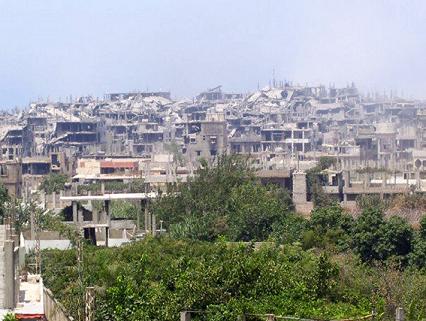A car bomb struck an American Embassy vehicle in Beirut yesterday, killing at least three bystanders and wounding a Lebanese Embassy employee in the first direct attack on U.S. interests in Lebanon in 20 years.
An estimated 20 people, including an American passer-by, were injured in the attack on the armored embassy sport utility vehicle, which Lebanese officials immediately linked to a wave of attacks on governing party legislators.
"This was an attack against the American role in Lebanon and the stability of Lebanon; it is part of the whole campaign against us over the last couple of years," said Amal Mudallali, foreign policy adviser to Saad Hariri, leader of the dominant bloc in parliament.
Several members of the U.S.-backed governing coalition have died in similar blasts since Mr. Hariri's father, former Prime Minister Rafik Hariri, was assassinated in a car bomb attack in February 2005.
But yesterday's attack was the first to hit an explicitly U.S. target since Marine Corps Lt. Col. William R. Higgins was kidnapped and killed by Iran-backed terrorists in February 1988. The most serious attack on Americans in Lebanon came in 1983, when a suicide attacker struck a U.S. Marine barracks, killing 241 servicemen.
Yesterday's blast in a largely industrial area of Christian north Beirut shook windows across the city, sending a slender plume of black smoke billowing over the capital.
It left the street scorched, several cars burned and torn, and nearby buildings damaged, with shattered windows and broken mortar.
The Lebanese driver suffered minor injuries and the only passenger, another Lebanese, was unhurt. However, the embassy immediately canceled a banquet for departing Ambassador Jeffrey Feltman scheduled for yesterday evening.
The U.S. Embassy said four persons were killed in the explosion but Lebanese authorities put the death toll at three. Among the wounded was one American, Mathew Clason of Minnesota, who was at the nearby National Evangelical Church at the time.
Miss Mudallali said extremists may have been trying to make a political point while President Bush is traveling in the Middle East. "The timing ... is not lost on anybody," she said.
She also suggested the attack was intended to undermine an international effort to break a long-running stalemate over the election of a new president.
"Politically those who are against us in the region are known," she added. "Everyone knows who is against the Americans in the region."
Government officials repeatedly have voiced suspicion that Syria, working through Hezbollah and other extremist organizations, has a role in a wave of attacks on pro-government legislators that threatens to wipe out their majority in parliament.
However, Paul Salem, the director of the Carnegie Middle East Center in Beirut, argued it is unlikely that Syria or Iran, another Hezbollah sponsor, is behind the explosion.
"Both Syria and Iran have always been mediators and have been clear never to touch anything American in Lebanon," he said. "It is possibly an al Qaeda or an al Qaeda-like cell."
Secretary of State Condoleezza Rice, traveling in Saudi Arabia with Mr. Bush, said the United States "will, of course, not be deterred in its efforts to help the Lebanese people ... resist force and interference in their affairs."
State Department spokesman Sean McCormack said in Washington that agents from the State Department's Bureau of Diplomatic Security will work with Lebanese authorities to investigate the blast



